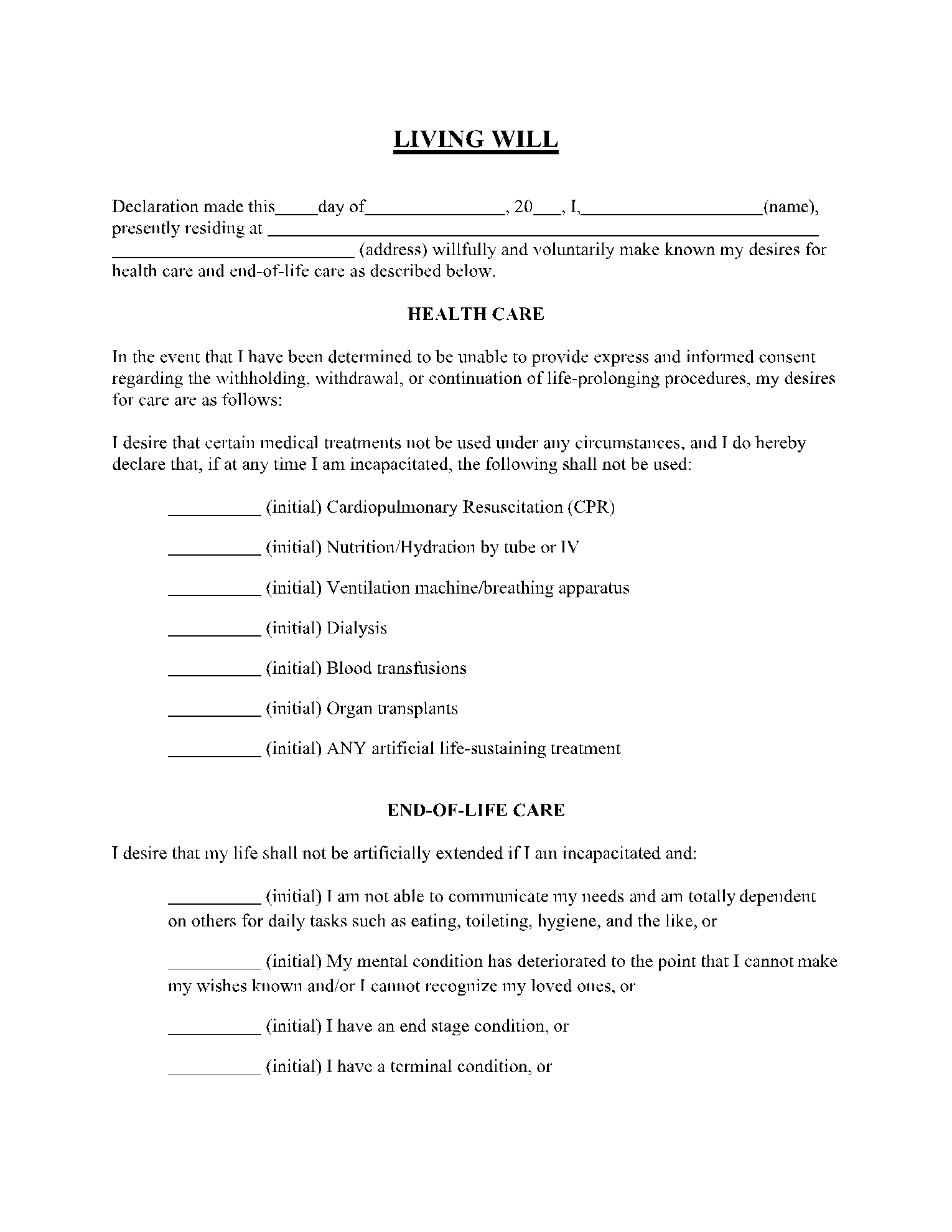When it comes to estate planning and making arrangements for the end of your life, getting a New Jersey advance directive can be highly helpful. An NJ living will is a form of advance directive that, in many states, includes a medical power of attorney, allowing a trusted person to make medical decisions on your behalf.
If you live in New Jersey and are thinking about making an advance directive for yourself, this guide will walk you through the basics of what it is, how to make it, and whether or not it is right for you.
What Is The New Jersey Living Will form?
In some conditions, living will in NJ free form helps you express your wishes regarding the withholding or removing life-sustaining procedures. You may also appoint someone to make potential healthcare decisions on your behalf.
If you need to make a living will in NJ, you can do so because:
- You want to be clear about your desires so that they are more likely to be met.
- You will require surgery or be admitted to the hospital.
- Your health is deteriorating.
- You've been told you have a terminal illness.
Why Do I Need Living Will in New New Jersey?
The following are some of the reasons why having a living will form in NJ is so essential:
- When you are unable to speak for yourself, a living will in New Jersey talk for you. Suppose someone is in a coma with no possible chance of recovery. In that case, the New Jersey advance directive might specify whether the patient wants to be kept alive by artificial life support.
- An NJ living Will can protect your loved ones from having to make life-or-death choices. It would be up to you to decide whether or not to stay on life support. NJ living will also put an end to any emotionally exhausting arguments between family members about the situation.
- You will still be able to make a choice in medical procedures and organ donation if you sign the contract. This is especially important for healthy people since their organs may be collected and used to give someone else a second chance at life.
- There would be a reduction in the financial burden. Being on life support is exceptionally costly, mainly when there is no fair hope of recovery. While putting a price on life may seem insensitive, medical bills may be catastrophic for many families.
- You will have peace of mind if you have a living will in NJ. You want to make tragic circumstances as simple as possible for yourself and your family because life is too unpredictable.
How to write a Living Will in New Jersey?
To make an NJ living, will follow these steps:
Step 1: Fill out the Living Will Form and print it.
Download the standard NJ living will in Adobe PDF or Microsoft Word format or write according to the living will template in NJ.
Step 2: Make a list of your preferred treatments.
First, determine how you want to be treated by physicians in the case of a significant medical emergency. Consider if you're going to be kept alive by life-sustaining therapies or whether you want to die naturally.
There are three primary treatment choices you'll need to explain on a free-living will form in NJ::
- Preference in the event of a terminal illness or accident
- Preference in the event of a prolonged vegetative state:
- Preference in the event of an end-stage illness
Decide if you want doctors to try any means possible to prolong your life with each decision, and initial your choice on the form. Even if you choose not to receive life-saving treatment, you can still request palliative care, which includes medications to relieve pain, keep you comfortable, and allow you to die peacefully.
Step 3: Make non-medical arrangements.
Religious or philosophical end-of-life plans, such as last rites or other religious funeral customs, may be made using an NJ living will. You may also indicate whether you want your body, organs, or tissues to be donated for transplantation or medical research. Your body will be placed on life support until your organs can be removed before being granted.
Step 4: Develop a plan on how your agent will act.
The living will in New Jersey gives you the option of empowering your health care agent or representative to use the document as a guideline or as a strict set of instructions.
Step 5: Obtain signatures from a witness and a notary
You'll need to sign and notarize your NJ living will after you've agreed on your treatment and end-of-life wishes. The condition in which you draught your living will in NJ determines the execution criteria. To authenticate your printable living will form NJ, most states allow you to use either a witness or a notary signature.
The following persons are not permitted to sign your living will as witnesses:
- a blood relative or a married relative
- an individual whose name appears in your last will and testament
- a person who may inherit a portion of your estate
Conclusion
Anyone concerned about their loved ones' feelings or their final medical treatment should consider executing a Living Will in New Jersey. It has become a required component of Estate Planning Attorneys' practice.
An NJ Living Will allows a patient to communicate in advance the medical care decisions they would make if they were incapacitated, preventing their families from making certain decisions for them. Getting a living will NJ gives you peace of mind and let your family know what your medical needs are.
